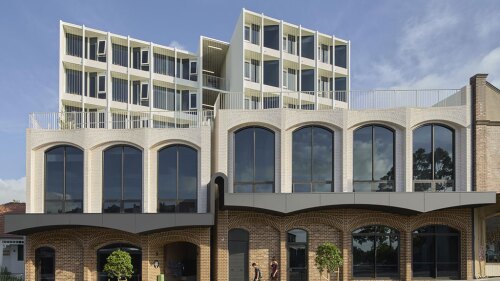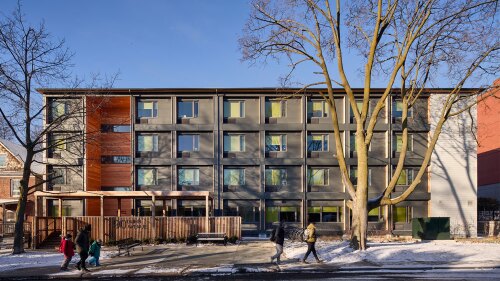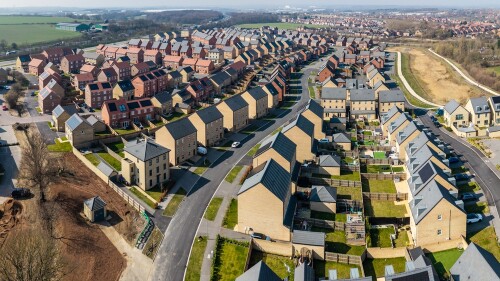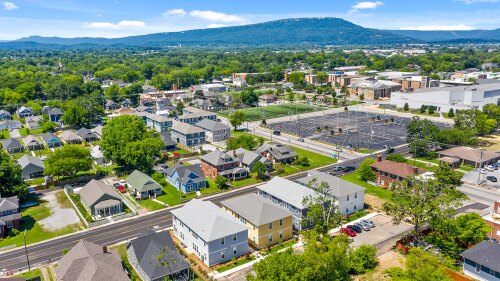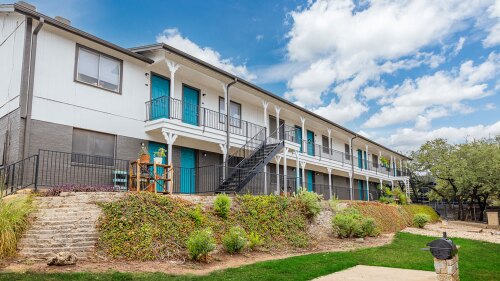Multifamily
Jeff Lubell recently joined ULI’s Terwilliger Center for Housing as a senior fellow. In this capacity, on a part-time basis, he will provide strategic direction, engage in research, and offer technical support to further the center’s commitment to ensuring that everyone has a home which meets their needs at a price they can afford. He’ll spend the balance of his time working with the Housing Innovations Group, which provides policy consulting services to state and local governments, foundations, nonprofits, and other clients.
The Opportunity Zone program, a national model to spur private investment of housing in underserved areas, has been extended by Congress beyond 2026, marking a significant opportunity for real estate professionals. This innovative initiative not only helps rebuild communities but is a win-win for residents, property developers, and investors. The program’s success in transforming economically distressed areas has proven its value, making it crucial for industry leaders to continue supporting it.
Texas has experienced a prolonged economic boom, bringing with it a significant explosion in population. From 2000 to 2023, the state’s population grew by a remarkable 46.3 percent. This level of growth inevitably places pressure on cities, whether to update infrastructure, revise planning regulations, or address other critical urban challenges.
Currently, vacancy rates in the Washington, D.C. area are around 20 percent, in line with the national average. The nationwide housing shortage, meanwhile, has hit a record high of 4.7 million homes, despite a five-year uptrend in new construction. The deficit is particularly pronounced in highly desirable urban and inner-suburban locations such as Alexandria, Virginia.
The mission of the ULI Terwilliger Center for Housing has been to ensure that everyone has a home that meets their needs at a price they can afford. Established in 2007 with a gift from longtime member and former ULI chairman J. Ronald Terwilliger, the Center’s activities include technical assistance engagements, forums and convenings, research and publications, and an awards program. The goal is to catalyze the production and preservation of a full spectrum of housing options.
ULI Award Winners: Long-Term Affordable Housing That Highlights Community-Building in Sydney Suburbs
In the Sydney suburb of Marrickville, two not-for-profit organizations—Fresh Hope Communities, the public benevolent institution entity of churches of Christ in New South Wales and the Australian Capital Territory; and Nightingale Housing of Brunswick, Victoria—came together to develop a building that holds 54 units renting at 80 percent of market rates, as well as two community-focused commercial spaces. The Churches of Christ Property Trust has provided a 99-year lease for the land, which allows the units to remain affordable far beyond a more typical 10-year period.
Across North America, cities are confronting a housing crisis that demands urgent, innovative responses. In Toronto, the launch of the Rapid Housing Initiative (RHI) in April 2020 marked a pivotal moment—an accelerated effort at the height of the pandemic to deliver safe, stable housing. Since then, unprecedented investments have been made in communities across Ontario to address housing insecurity, reshaping the province’s residential landscape.
Although video conferencing and other technological innovation has made it possible for economic activities to be dispersed, differences in growth rates, jobs, and incomes have increased, in recent decades, as regions in the Northwest and Midwest have lost population and regions in the South and West have experienced population, employment, and income growth. The negative effects of housing price increases in growing regions serve as a constraint to domestic migration and economic opportunities, especially for lower-skilled workers. In the long run, unaffordable housing prices contribute to unequal regional development and worsening income disparities. Job-rich regions need to encourage housing production.
Even as national policy support becomes less predictable, many states and localities are hard at work developing pragmatic, scalable housing solutions.
In 2015, Austin, Texas’ mayor at the time, Steve Adler, brought together business leaders, real estate professionals, and housing experts to take on the crisis in affordable rental housing and the risks it posed to the city’s workforce stability and economic sustainability. With insights and research from a ULI Technical Advisory Panel and ULI’s Terwilliger Center for Housing, the Austin Housing Conservancy fund was born, offering a revolutionary approach to preserving workforce housing. Now known as the Texas Housing Conservancy, the fund became the nation’s first to combine a nonprofit investment manager, Affordable Central Texas, with an open-end private equity fund.






